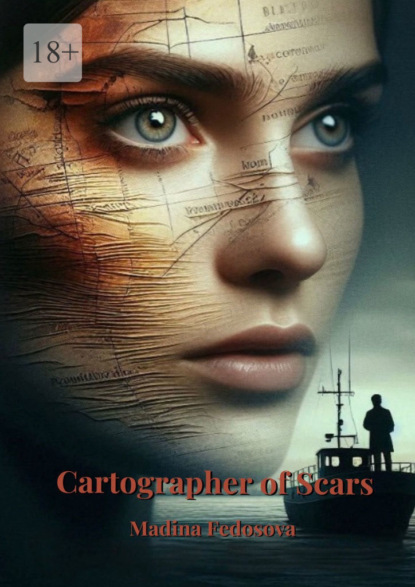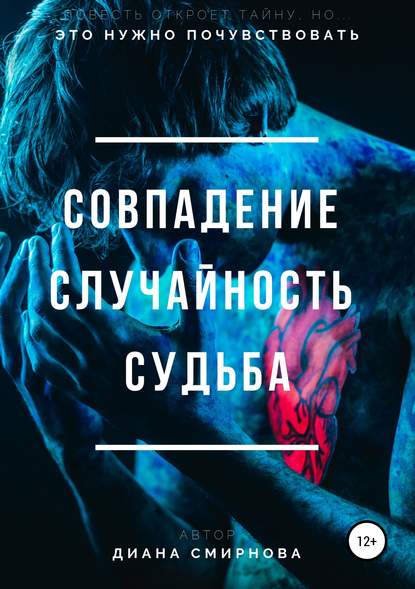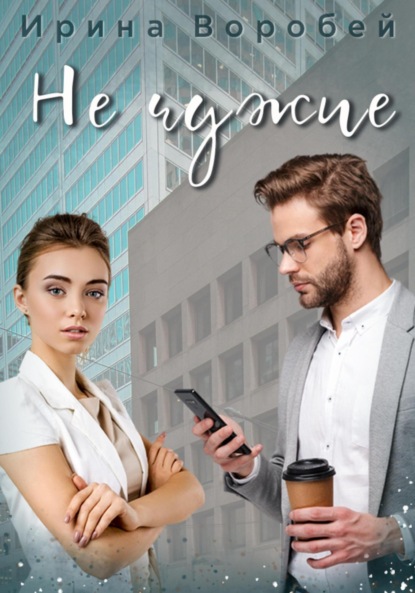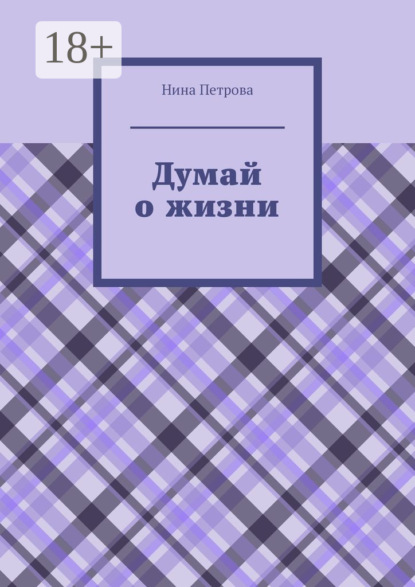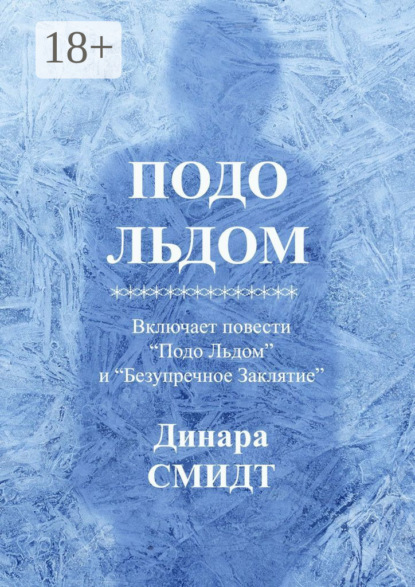- -
- 100%
- +
“Hey, rookie! You from anatomy too?” he asked with a wide smile.
“Yes,” Miloš nodded, “it’s just incredible!”
“Exactly!” the redhead laughed. “I’m Dragan. And you?”
“Miloš.” Miloš extended his hand.
“Great!” Dragan shook his hand. “Come on, I’ll tell you something interesting. By the way, want to join our group? We’ve already got a crew going.”
Miloš gladly agreed. Together they joined a small group of students clustered by the window. There were girls, guys, of different nationalities, from different corners of Yugoslavia.
“So, guys, how’d you like anatomy?” asked a beautiful girl with long black hair who introduced herself as Jasna.
“Amazing!” Miloš exclaimed. “I’m just in awe!”
“Yeah, it’s cool,” Ivan nodded, who had already managed to meet Miloš. “But the most interesting part is the practicals. We’ll start dissecting soon.”
Miloš’s breath caught at these words. Dissecting! He had never seen a corpse, but he wasn’t scared; rather, he was interested.
“Have you already done anything?” he asked.
“Well, we’ve already argued about who’ll cut first,” Dragan laughed. “But of course, everything’s under the professor’s supervision. By the way, Professor Jovanović is a legend! They say he knows the structure of every human organ by heart!”
“Yeah, he’s impressive,” Jasna agreed. “He can even talk about the most boring things in a way that you just listen spellbound.”
They talked for a long time, discussing lectures, teachers, future exams. Miloš felt like part of this company, part of something big and important. He felt a surge of energy, a desire to learn, to know, to move forward. He understood that he had found his place, found like-minded people, found his calling.
He particularly liked Ivan – a tall, lanky guy with an open gaze and a kind smile. Ivan, like Miloš, was from a poor family, and they quickly found common ground, understanding each other without words. They had met on the first day at the institute and had been inseparable ever since.
“So, Miloš,” Ivan asked, slapping his friend on the shoulder as they left the stuffy anatomy auditorium, “how did you like your gateway to the human cosmos today?”
Miloš smiled, his eyes shining with a mixture of delight and reverence.
“The cosmos, Ivan! Nothing less! I had no idea it was all so… perfect. It seemed every fiber, every vessel was part of an incredible symphony.”
The October wind, chilling to the bone, wandered the institute corridors, making students wrap themselves in scarves and hide their hands in their pockets. After the anatomy lecture, which had lasted a long two hours, Miloš and Ivan went outside, breathing in the cool air of freedom.
“You know, Miloš,” Ivan began, adjusting his glasses, which constantly slid down his thin nose, “I was thinking… Do we even understand what we’ve gotten ourselves into?”
Miloš stopped, lighting a cigarette. The smoke, dissolving in the air, left a bitter aftertaste.
“What do you mean?” Miloš asked, exhaling smoke.
“All this… Medicine, doctors, responsibility… Have you read the Hippocratic Oath? It’s just terrifying! ‘I will prescribe regimens for the good of my patients according to my ability and my judgment and never do harm to anyone.’ And what if I can’t? What if I do something wrong? What if someone dies because of me?”
Miloš took a drag on his cigarette, watching the passers-by hurrying about their business. Sarajevo lived its usual life, unaware of the doubts and fears tormenting the hearts of two future doctors.
“Listen, Ivan,” Miloš said, “I understand how you feel. I think about it sometimes too. But if we’re constantly afraid, we won’t be able to do anything. We have to believe in ourselves, study, improve. And remember that we’re not alone. We have friends, we have teachers, we have…” he fell silent, searching for the right word, “…a duty.”
“Duty?” Ivan repeated, skeptically arching an eyebrow. “To whom? To humanity? To the state? Or to our own conscience?”
Miloš smirked.
“Probably to all of that together,” he answered. “You know, my grandfather always said: ‘A doctor is not just a profession, it’s a service. Service to people, service to truth, service to good.’ And I think he was right.”
Ivan fell silent, watching the pigeons flying by. They circled over the square, as if trying to find their place in this chaotic world.
“And you know, Hippocrates,” Ivan suddenly said, “was not only a doctor but also a philosopher? He said that health is harmony between the body, mind, and soul. And that a doctor should treat not only the body but the whole person.”
Miloš nodded.
“Yes, I’ve read about that,” he said. “And I think it’s very important. You can’t treat people like machines that need fixing. You need to see them as individuals, with their feelings, fears, hopes.”
They walked in silence, each lost in their own thoughts. The wind tousled their hair, and a long road to the peaks of medical knowledge lay ahead of them.
“Listen, Miloš,” Ivan broke the silence, “do you know that in the Middle Ages, doctors were called ‘servants of death’? Because they constantly faced death and were often powerless before it.”
Miloš smirked.
“Yes, I know,” he answered. “But I think we should try to be not servants of death, but servants of life. We should fight for every life, no matter how hard it is.”
“And how are we going to do that?” Ivan asked, irony in his voice. “We don’t have a magic wand.”
Miloš stopped and looked at his friend. A fire of determination burned in his eyes.
“We have knowledge, Ivan. We have experience. We have hands and hearts.”
Ivan smiled.
“You’re right, Miloš,” he said. “Well then, shall we go learn to be servants of life?”
Miloš nodded, and they headed to the library, preparing for new trials and new knowledge.
Miloš felt happy. He had found his place in life, found friends, found his calling. He knew that a difficult path full of trials and difficulties lay ahead of him. But he was ready for them.
He dreamed of becoming a good doctor. He wanted to help people. He wanted to make the world a better place. “Who, if not us?” he thought, remembering the words of a song he loved to listen to on the radio.
He didn’t yet know that soon his dreams would be cruelly trampled by war. That he would have to see death, suffering, violence. That he would have to make choices that would haunt him for the rest of his life. That he would lose everything dear to him and be left alone with his pain.
But for now, he was young, full of strength and hope. Sarajevo seemed to him the most beautiful city in the world, and life – an endless adventure.
He was ready for the future.
Chapter 3
A Bridge Across the Abyss
The rain, as if enchanted, wouldn’t let up. It had been pouring over Sarajevo for three days now, turning the streets into muddy rivers and the mood of the citizens into a gray, monotonous palette. Aliya huddled in an old scarf that smelled of dampness, trying to warm up a little. The cold seeped under her skin, making her shiver and think of hot tea.
Today she was to visit the man the city called the Cartographer of Scars. Miloš… Legends swirled around this name, as if he were a character from an old fairy tale. They said he lived on a barge moored to the bank of the Miljacka River and drew maps of human suffering. They said he could see what was hidden from the eyes of ordinary people, that he could read the scars on bodies and souls. “A scar is not just a mark, it’s a story written in blood,” Aliya remembered Dr. Hasan’s words.
The barge, visible in the fog, did look ominous. Rust, like a disease, ate away at its sides, and on the deck lay fragments of old nets, pieces of wood, and other junk collected by the river. It seemed like a ghost from the past, washed ashore into modernity. Aliya shivered. “I wonder what it’s like to live in such a place? Completely cut off from the world,” she thought.
She was a little scared. She had heard that Miloš was unsociable, withdrawn, even a little mad. They said the war had broken him, that he had lost faith in people and in himself. “But even in the most broken person, you can find a spark of hope,” Aliya told herself, remembering her grandmother’s words.
She took a deep breath, gathering her courage, and resolutely headed towards the shaky gangplank leading to the barge. The old boards creaked underfoot, and the wind whistled in her ears, as if warning her against this visit.
Reaching the door of a small superstructure that served as Miloš’s home, Aliya stopped. What should she say? How to start a conversation with a man who had walled himself off from the whole world? “The main thing is to be sincere and respectful,” she decided.
She knocked – quietly but insistently.
Silence reigned inside. All that could be heard was the rain drumming on the roof and the creaking of old furniture somewhere. Aliya knocked again, louder.
Several long minutes passed before the door creaked and opened a crack. Miloš stood on the threshold.
Aliya gasped. She expected to see anyone but this. Before her stood an emaciated, unshaven man with extinguished eyes and deep wrinkles that furrowed his face. He looked much older than his years. His eyes, once probably full of life and enthusiasm, now seemed empty and lifeless. He wore an old, faded T-shirt and dirty pants.
“What do you want?” he asked hoarsely, as if spitting out the words.
Aliya tried not to show her excitement.
“Hello, Miloš,” she said, trying to speak softly and friendly. “My name is Aliya, I’m a psychologist from the rehabilitation center. Dr. Hasan…”
“I know,” Miloš interrupted her, “what does he want from me? Another medal for compassion? Or does he want me to draw him a map of his hemorrhoids?”
Aliya frowned. She hadn’t expected such a rude reception.
“Dr. Hasan thinks you can help one of our patients,” she said, trying to remain calm. “He thinks your… talent… could be useful.”
Miloš smirked, and a spark of sarcasm flashed in his eyes.
“My ‘talent’? ” he repeated. “Are you serious? I haven’t been able to help anyone for a long time. I need help myself. And by the way, Dr. Hasan knows that perfectly well.”
“I know it’s hard for you,” Aliya said, “but I believe you can help this man. He’s suffering terribly. He’s lost everything dear to him. And he needs your help to find the strength to live on.”
Miloš looked at Aliya with a long, piercing gaze. She felt his eyes, like scanners, penetrating the very depths of her soul.
“Who is he?” Miloš asked after a short silence.
“His name is Ahmed,” Aliya answered. “He’s a war veteran. He lost his family, his home, his hope in the war. He can’t forget what he saw. He can’t move on. He’s locked in his past, and he needs help to break out of that prison.”
Miloš turned away from Aliya, looking at the rain drumming on the barge’s rusty roof. The raindrops, streaming down the glass, resembled tears.
“And what do you want from me?” he asked finally, without turning to her. “To draw him a map of his hell? To show him what his personal abyss looks like?”
“I want you to talk to him,” Aliya answered, trying to speak sincerely and convincingly. “To try to understand his pain. To help him find the strength to live on, no matter what.”
Miloš sighed and looked at Aliya with a long, heavy gaze.
“I don’t know if I can do that,” he said. “I’ve long forgotten how to talk to people. I’ve forgotten how to believe. I’ve forgotten how to hope.”
Aliya stepped closer to him and looked him straight in the eyes.
“I believe in you, Miloš,” she said. “I know you can. You are the Cartographer of Scars. You know how to see what others don’t. You know how to touch the most intimate corners of the human soul.”
Miloš was silent, as if struggling with himself. Aliya felt an intense battle going on inside him.
“Alright,” he said at last, “I’ll try. But I promise nothing. And if I fail, don’t blame me.”
“‘Try’? ” Aliya repeated, and her voice sounded irritated. She had come a long way through the rain and fog, spent a lot of time, and now all she heard in response was a pathetic “try”?
Miloš seemed not to notice her tone. He remained impassive, like a stone statue.
“What do you want to hear?” he asked, shrugging. “The Hippocratic Oath in reverse? A promise to raise the dead? I’m not God, Aliya. I’m just… an old soldier trying to find some meaning in this mad world. And yes, I will ‘try’ to do what I can. But there are no guarantees. There are few guarantees in life, you know.”
Aliya clenched her fists, trying to hold back her anger. She understood that Miloš was suffering too, that he also carried a heavy burden of the past. But she needed his help. She needed him to at least try to help Ahmed.
“Ahmed…” she began, lowering her voice. “He’s lost, Miloš. He’s lost his bearings. He doesn’t know how to live on. He thinks his life is over. And I… I just want to give him hope. I want him to believe in himself again.”
Miloš was silent, looking out the window. The rain continued to drum on the glass, as if counting the seconds of passing life.
“Okay,” he said finally, “come in. Tell me about him. Maybe I can help somehow. But don’t expect miracles. There are no miracles. There’s only pain. And you have to learn to live with that pain.”
He stepped aside, letting Aliya into the room.
Entering inside, Aliya felt as if she had stepped into another world. The room was small, dark, and uncomfortable. The only source of light was a desk lamp with a shade covered by an old newspaper. The walls were hung with maps, drawings, and photographs. Chaos reigned on the table – pencils, paints, brushes, and other art supplies. In the corner stood an old sofa, piled with books and papers. The air smelled of tobacco, dampness, and some elusive sadness.
“Pain lives here,” Aliya thought, looking around.
Miloš sat on the sofa, gesturing for her to sit next to him. She sat down, trying not to touch the dusty upholstery.
“Well, tell me,” Miloš said, “what kind of bird is this Ahmed of yours? What happened to him?”
Aliya began her story. She talked about Ahmed’s pre-war life, his family, his dreams and hopes. She talked about how the war had destroyed all that, how he had lost his loved ones, how he had seen death and violence. She talked about how he had returned from the war broken and empty, how he had withdrawn into himself and stopped communicating with people.
Miloš listened silently, without interrupting. His gaze was fixed on Aliya’s face, as if he were trying to read the whole truth about Ahmed in her eyes. Aliya felt that he saw right through her, that he understood her better than she understood herself.
She told him how Ahmed suffered from nightmares, outbursts of anger, feelings of guilt and despair. She told him how he couldn’t find his place in life, how he felt like a stranger and unwanted.
“He feels guilty for being alive,” Aliya said, “he thinks he should have died with his loved ones. It’s eating him up inside.”
Miloš closed his eyes, as if trying to shut out these words.
“I know how he feels,” he said, “I went through it myself. Survivor’s guilt is the most terrible of all scars. It’s not visible on the outside, but it eats away at the soul from within, like acid.”
Aliya looked at Miloš with sympathy. She understood that it was hard for him to remember the past, that every one of her phrases echoed with pain in his heart.
“And what do you think?” Aliya asked. “Can you help him?”
Miloš opened his eyes and looked at Aliya with a long, piercing gaze.
“I don’t know,” he said. “I’ll try. But I promise nothing. I can’t bring back his family, I can’t erase the horrors of war from his memory. But I can try to help him find the strength to live on. As an old sage once said: ‘The past is an anchor that drags us to the bottom. But the past can also be a sail, if we learn to manage it properly.’”
Aliya nodded.
“That’s all I’m asking,” she said. “Just try.”
Miloš got up from the sofa and walked over to the table. He picked up a pencil and a blank sheet of paper.
“Tell me about his scars,” he said, “where are they? What do they look like? What does he say about them?”
Aliya frowned.
“Scars?” she repeated. “He has no scars. He wasn’t wounded in the war.”
Miloš smirked, and a shadow of sadness flashed in his eyes.
“You’re wrong, Aliya,” he said. “Every person who has survived a war has scars. It’s just that not all of them are visible on the outside.”
Aliya felt a wave of protest rise inside her. “I’m sure he has no scars!” she repeated, trying to sound confident, though inside everything tightened with a strange foreboding. “He wasn’t on the front lines, he was…”
Miloš cut her off sharply, and his voice held unconcealed bitterness. “And do you know what the front line is, Aliya? Do you think it’s only trenches and bullets? The front line is where the world collapses. Where hope dies. Where yesterday’s friends become enemies. And believe me, Aliya, that front line runs through the heart of everyone who has survived a war. Everyone has scars. It’s just that some are on the body, and others are in the soul. And the latter are the most terrible.”
He lowered his gaze to the blank sheet of paper, as if preparing to summon his art. “You know what old soldiers say? ‘The bullet is a fool, the bayonet is a fine fellow. But the worst wound is the one you inflict on yourself.’ And it’s true, Aliya. Self-destruction is what kills people after the war.”
Miloš raised his head and looked at Aliya with his piercing eyes, as if looking into her very soul. “Tell me about his eyes,” he asked, softening his tone. “What do you see in them? A reflection of the past? Emptiness? Or a glimmer of hope? Tell me about his silence. What does it hide? Pain? Fear? Or indifference to everything? Tell me everything you know about this man, Aliya. Because I need to see him. I need to feel his pain. I need to understand how to help him.”
Aliya fell silent, trying to rethink everything she had heard. She was used to thinking in scientific categories, relying on facts and evidence. But Miloš was talking about something else – about something that couldn’t be measured, weighed, or seen under a microscope. He was talking about the human soul.
“He…” Aliya began, stammering, “he stares into nothingness. There’s no fire in his eyes. No life. Only… a kind of universal sadness. As if he’s seen all the most terrible things in this world. And it broke him.”
Miloš nodded, as if confirming her words.
“His silence…” Aliya continued, “it’s oppressive. It’s deafening. He hardly speaks. Only sometimes, in his sleep, he screams. He says names… But I can’t make out whose.”
Miloš quickly sketched something on the paper, as if trying to capture her words, her emotions, her impressions.
“And what does he feel?” Miloš asked, not looking up from the drawing.
Aliya sighed, remembering her few conversations with Ahmed.
“He feels guilt,” she said, “he blames himself for surviving. He thinks he should have died with his loved ones. And also… he feels fear. Fear of the future. Fear that the war might repeat itself.”
Miloš put down the pencil and looked at Aliya.
“And what does he want?” he asked. “What does he dream about?”
Aliya thought. She knew that Ahmed no longer dreamed of anything. His dreams had died with his family. But something must have remained? Some hope? Some desire?
“He wants peace,” she said finally. “He wants to be left alone. To not be touched. To just… fall asleep and not wake up.”
Miloš closed his eyes and rubbed the bridge of his nose.
“Peace…” he whispered. “The greatest luxury in this world. And the most unattainable.”
He picked up the pencil again and began to quickly sketch something on the paper. Aliya watched him, holding her breath. She felt that Miloš was approaching the answer, that he was about to understand how to help Ahmed.
“Where is he now?” Miloš asked, not looking up from the drawing. “Where can I find him?”
Aliya, barely suppressing her excitement, said:
“He’s at our center now, a small rehabilitation center for veterans, a few kilometers from Sarajevo. A quiet, secluded place… We try to create an atmosphere of peace and safety there. As much as possible, of course.”
Miloš didn’t seem to be listening to her. He continued to study the drawing on the sheet of paper intently, as if searching for answers in it.
“Safety…” he muttered, more to himself than to her. “Do you really believe in that, Aliya? In safety? After all we’ve seen?”
He raised his eyes and looked at her with such despair that Aliya involuntarily shivered.
“You know,” Miloš continued, “there’s an old saying: ‘You can’t escape your fate, even if you hide at the bottom of a well.’ And it’s true, Aliya. You can’t run from your past. It will always pursue you, like a shadow. And no safety will help.”
Aliya wanted to object, but Miloš didn’t let her get a word in.
“And do you know what the most dangerous place in the world is?” he asked, and strange notes sounded in his voice. “Not the battlefield. Not a prison. Not a psychiatric clinic. The most dangerous place is human memory. That’s where everything we try to forget is stored. All our fears, our sins, our most terrible nightmares. And sooner or later they break out. And then… then beware!”
Aliya felt a chill run down her spine. Miloš spoke so convincingly, so sincerely, that she became truly afraid.
“I want to talk to him,” Miloš said, putting the drawing aside. His eyes burned with a strange fire, a mixture of curiosity, compassion, and… some inconsolable sadness.
Aliya gasped in surprise.
“Now?” she repeated. “But… I don’t know… I’m not sure he’s ready. He’s very withdrawn, very distrustful. He needs time to get used to new people.”
Miloš shook his head.
“We have no time, Aliya,” he said. “Time is our main enemy. The longer we wait, the deeper he sinks into his pain. And the harder it will be to help him.”
Aliya hesitated. She understood that Miloš was right. But she was also afraid of scaring Ahmed away, of pushing him away from her.
“I’ll call the center,” she said, “warn them. But I can’t promise anything. If he refuses to talk to you, I can’t force him.”
Miloš smirked, and a shadow of fatigue flashed in his eyes.
“I’m not asking you to, Aliya,” he said. “I respect freedom of choice. Every person has a right to their pain. And to their own path to healing.”
Miloš got up from the sofa and headed for the door.
“Let’s go,” he said. “Let’s not waste time.”
Aliya looked at him in surprise. She expected to see a broken, disappointed man who had long given up on everything. But instead, she saw a strong, determined man ready to fight for someone else’s soul.
“Where are we going?” Aliya asked, getting up from the sofa.
“To Ahmed,” Miloš answered, opening the door. “We’re going to draw his map.”
Aliya, barely containing her growing impatience, took out her phone. The connection to the rehabilitation center was the only bridge connecting her to Ahmed, and she was afraid this bridge could collapse at any moment. The rain outside seemed to echo her anxieties, drumming furiously against the glass and creating an oppressive atmosphere.
Miloš, meanwhile, froze by the window like a statue carved from gray stone. His gaze was fixed somewhere in the distance, beyond the curtain of rain, and Aliya couldn’t understand what he was thinking about. Perhaps he was remembering his own past, his own scars, his own losses.
She stepped out into the barge’s narrow corridor, trying to speak as quietly as possible so as not to disturb Miloš. But her voice still trembled with excitement.
“Hello, this is Aliya, the psychologist,” she said into the receiver, barely restraining the tremor in her voice. “I wanted to warn you that we’ll be arriving soon with a guest…”
Silence fell on the other end of the line. Aliya knew that the doctor on duty, an old soldier named Branko, was listening warily to her every word.
“What guest?” Branko asked finally, his voice dry and detached.
“With Miloš,” Aliya answered, mentally preparing for a storm. “You’ve probably heard of him… The Cartographer of Scars.”
A long pause followed, during which Aliya heard only the noise of the rain and her own racing heartbeat.


